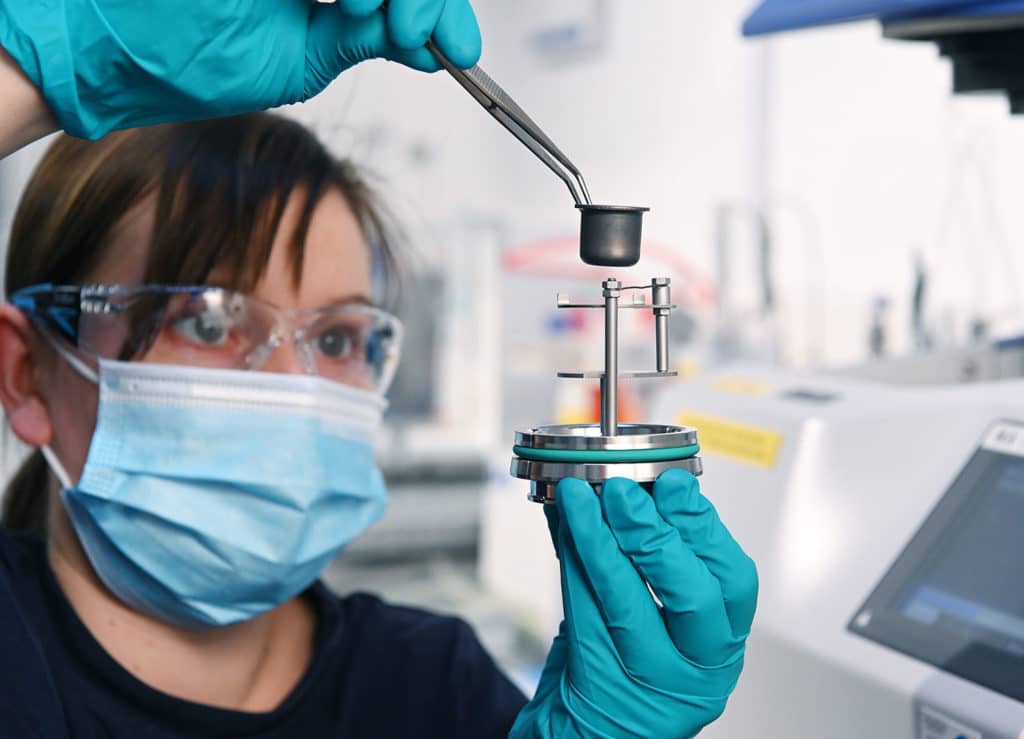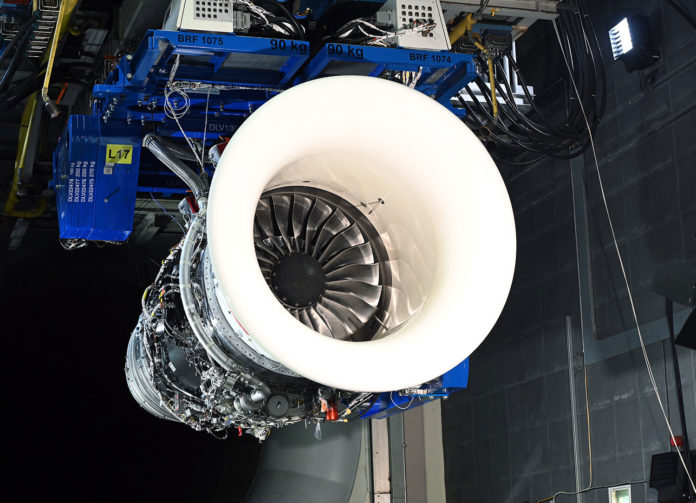Rolls-Royce continues to explore the path of sustainable fuels to reduce the environmental footprint of aviation and move towards its goal of zero net CO2 emissions by 2050. The engine manufacturer announced that it had conducted the first tests of 100% Sustainable Aviation Fuel (SAF) in a business jet engine.
Tests on the Pearl 700, Rolls-Royce’s newest business aviation engine, were carried out at the facilities in Dahlewitz, Germany. They took place just weeks after unblended SAF was successfully used for the first time in engine ground tests on a Trent 1000 engine in Derby, UK.
Rolls-Royce wants to show that its entire range of current engines is capable of operating safely with 100% SAF. At present, SAF is only certified for blends of up to 50% with conventional jet fuel and can be used on all current Rolls-Royce engines.

The SAF used in the tests was produced by low-carbon fuel specialist World Energy in Paramount, California, using a variety of sustainable sources, including municipal solid wastes; cellulose waste from the forestry industry; used cooking oil; energy crops, including camelina, jatropha, halophytes, and algae; and non-biological fuels like waste gases from steelworks.
According to the Californian company, its use does not require any modification to aircraft or engine fuel systems, distribution infrastructure, and storage facilities. This unblended fuel could reduce net CO2 lifecycle emissions by more than 75% compared to conventional jet fuel, with the possibility of further reductions in the future.
“Sustainable aviation fuels have the potential to significantly reduce the carbon emissions of our engines, and combining this potential with the extraordinary performance of our Pearl engine family brings us another important step closer to enabling our customers to achieve net-zero carbon emissions,” said Dr. Joerg Au, Chief Engineer – Business Aviation and Engineering Director Rolls-Royce Deutschland.
The highly efficient Pearl 700 is currently in development and intended to power the Gulfstream G700 – five prototypes of which are currently out the flight test campaign. The Pearl 700 combines the Advance2 engine core with a brand-new low-pressure system, which allows an 8% increase in take-off thrust and a 5% higher efficiency compared to the BR725 engine.
